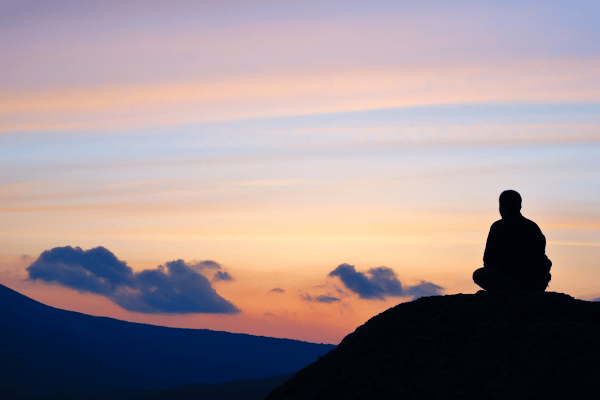The Benefits of Meditation and Mindfulness: How Sri Lanka’s Ancient Tradition Can Help You Find Inner Peace and Wellness – By Nadeeka – eLanka

Meditation and mindfulness are ancient practices that have been used for centuries to promote relaxation, reduce stress, and improve overall wellness. Sri Lanka is one of the countries that has a long tradition of meditation and mindfulness, and many people from around the world come to Sri Lanka to learn these practices. In this article, we will explore the benefits of meditation and mindfulness and how they can help you find inner peace and wellness.
Meditation and mindfulness are practices that involve training your mind to focus on the present moment and to become aware of your thoughts, emotions, and sensations without judgment.
Meditation is a technique that involves training your mind to focus on a particular object, such as your breath, a sound, or an image, to achieve a state of mental clarity and relaxation. The goal of meditation is to reduce distractions, increase concentration, and achieve a sense of inner peace and calmness.
Mindfulness is a type of meditation that involves paying attention to your thoughts, emotions, and sensations as they arise in the present moment, without judgment or reaction. The goal of mindfulness is to increase awareness and acceptance of your experiences, and to reduce stress and negative emotions.
Both meditation and mindfulness are rooted in ancient spiritual traditions, such as Buddhism and Hinduism, but they have become increasingly popular in the Western world as a way to reduce stress and promote wellbeing. There are many different types of meditation and mindfulness practices, and each can be adapted to suit your individual needs and preferences.
Meditation and mindfulness have been shown to offer numerous benefits for both mental and physical health. Here are some of the key benefits:
- Reduces stress and anxiety: One of the most well-known benefits of meditation and mindfulness is their ability to reduce stress and anxiety. Regular practice can help lower levels of the stress hormone cortisol, reduce anxiety symptoms, and increase feelings of relaxation and calmness.
- Improves mental focus and clarity: Meditation and mindfulness can help improve concentration and mental clarity. They train the mind to focus on the present moment, which can increase productivity and reduce distractions.
- Enhances emotional wellbeing: Practicing meditation and mindfulness can help regulate emotions and reduce negative feelings such as anger, fear, and depression. It can also increase positive emotions such as joy, gratitude, and compassion.
- Boosts overall health: Meditation and mindfulness have been linked to a range of physical health benefits, including lower blood pressure, improved immune function, and reduced inflammation. Regular practice can also improve sleep quality and reduce the risk of chronic diseases such as heart disease, diabetes, and obesity.
- Improves relationships: Mindfulness practices have been shown to enhance social connections and increase empathy, which can lead to stronger relationships and improved communication skills.

Here are some steps for practicing meditation and mindfulness:
- Find a quiet space: Choose a quiet and peaceful space where you can sit comfortably and won’t be distracted by external noises or interruptions.
- Sit comfortably: Sit cross-legged on a cushion or chair with your back straight and your hands resting on your knees. You can also lie down if sitting is uncomfortable.
- Focus on your breath: Close your eyes and focus your attention on your breath. Take deep, slow breaths and feel the sensation of the air moving in and out of your body.
- Let go of distractions: When thoughts or distractions arise, simply acknowledge them and let them go without judgment or reaction. Refocus your attention on your breath.
- Practice regularly: Set aside time each day to practice meditation and mindfulness. Even just a few minutes each day can have a significant impact on your mental and emotional wellbeing.
- Consider guided meditations: If you’re new to meditation, you may find it helpful to use guided meditations or mindfulness apps to help you get started. These resources can provide guidance and support as you develop your practice.
Remember, meditation and mindfulness are personal practices, and there is no one-size-fits-all approach. Experiment with different techniques and find what works best for you. With practice and dedication, you can experience the many benefits of these practices and find greater peace and clarity in your daily life.







